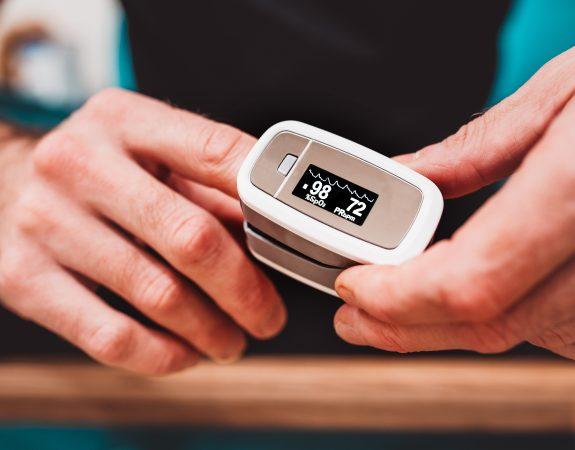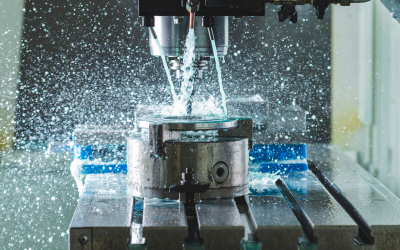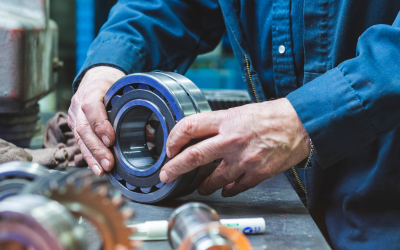Safety and quality are non-negotiable in the medical devices industry. Every piece of medical hardware follows the same criteria: the final product must strictly adhere to quality standards, with accuracy, quality, and consistency across the board. With these criteria in mind, computer numerical control (CNC) is the perfect solution for producing such parts.
CNC machining is one of the most well-known subtractive manufacturing technology today and a flexible and robust way to make custom metal and plastic prototypes and parts. It is a process widely known for creating components with far greater accuracy and precision than other manual machining processes.
Benefits of CNC Machining in the Medical Industry:
- No constraint on quantity: CNC machining is great for creating one-off custom parts. This is a significant advantage when producing single-use parts, which is typically the case for specialized medical tools, devices, appliances, and other medical components. Due to the automated process, it can also be repeated as many times as desired to achieve a production run of identical parts.
- Wide Variety of Materials: CNC offers a wide range of material options including medical-grade metals (e.g., stainless steel and titanium) and plastics (e.g., PEEK and PC).
- Tight Tolerances: More sophisticated medical devices demand excessively tight tolerances, a leap that is easy to accomplish on decent CNC machines. With its computerized manufacturing process, there is little to no room for human error.
Common Applications of CNC Machining in the Medical Industry:
1. Surgical Instruments
Surgical tools and instruments must be made with care and precision and are subject to extra safety requirements such as ease of sterilization. Therefore, medical device manufacturers may favor CNC machining for these surgical tools not just because it is compatible with medical-grade materials, such as stainless steel 316L, but because the demand for precision is high. With no constraints on quantity and the use of a computer-automated machine, CNC can cater to the need for high volumes of identical precision parts as well as low-volume personalized surgical tools.
Common Machined Surgical Instruments
Handles, Cutters, Saws, Forceps, Holders, Clamp and Spacers
Common Materials Used for Machined Surgical Instruments
Stainless steels, particularly surgical steel (AISI 316L), Titanium alloys and Aluminum alloys
2. Implants
Implants are such personal items. Each one has to be custom-made to fit an individual’s needs. This means a process like injection moulding will be uneconomical to use, as the mould production will unnecessarily increase production costs. The ability to create patient-specific parts makes CNC machining ideal for making implants.These implants are made from biocompatible materials, including titanium and PEEK, all of which are offered in CNC machining.
Common Machined Implants
Knee Implants, Hip implants and Spine implants
Common Materials Used for Machined Implants
Titanium alloys, Cobalt-chrome alloys, PEEK and Stainless steels (for temporary implants)
3. Medical Equipment
Medical equipment, such as ultrasounds, monitors and MRI scanners, are more complex pieces of equipment that may comprise hundreds or thousands of individual plastic and metal plastics, many of which can be produced via CNC machining. Accordingly, you can machine parts large and small, everything from the buttons and switches to the large housings used to enclosed these devices.The fact that these components need not be biocompatible opens up multiple material options that can be considered for production through CNC machining.
Common Machined Medical Equipment
Ultrasound machines, MRI scanners, CT scanners, Diagnostic equipment and Monitors
Common Materials Used for Machined Medical Equipment
Stainless Steel, Aluminum, PC and PP
4. Micro Precision Parts
As the name suggests, micro machining is the process of machining very tiny parts, often delivered with tools smaller than 0.015 inches in diameter and tolerances of just a few tenths. As a result, these parts are used primarily in implantable devices, drug-delivering technologies and other surgical tools. They have immense sophistication bundled into their miniature size, which demands higher levels of precision — precision that can be achieved through CNC machining.
Common Micro-machined Medical Equipment
Stents, Catheters, Pediatric VADs, Pacemakers, Screws, Tubes and Drug-delivering technologies





0 Comments